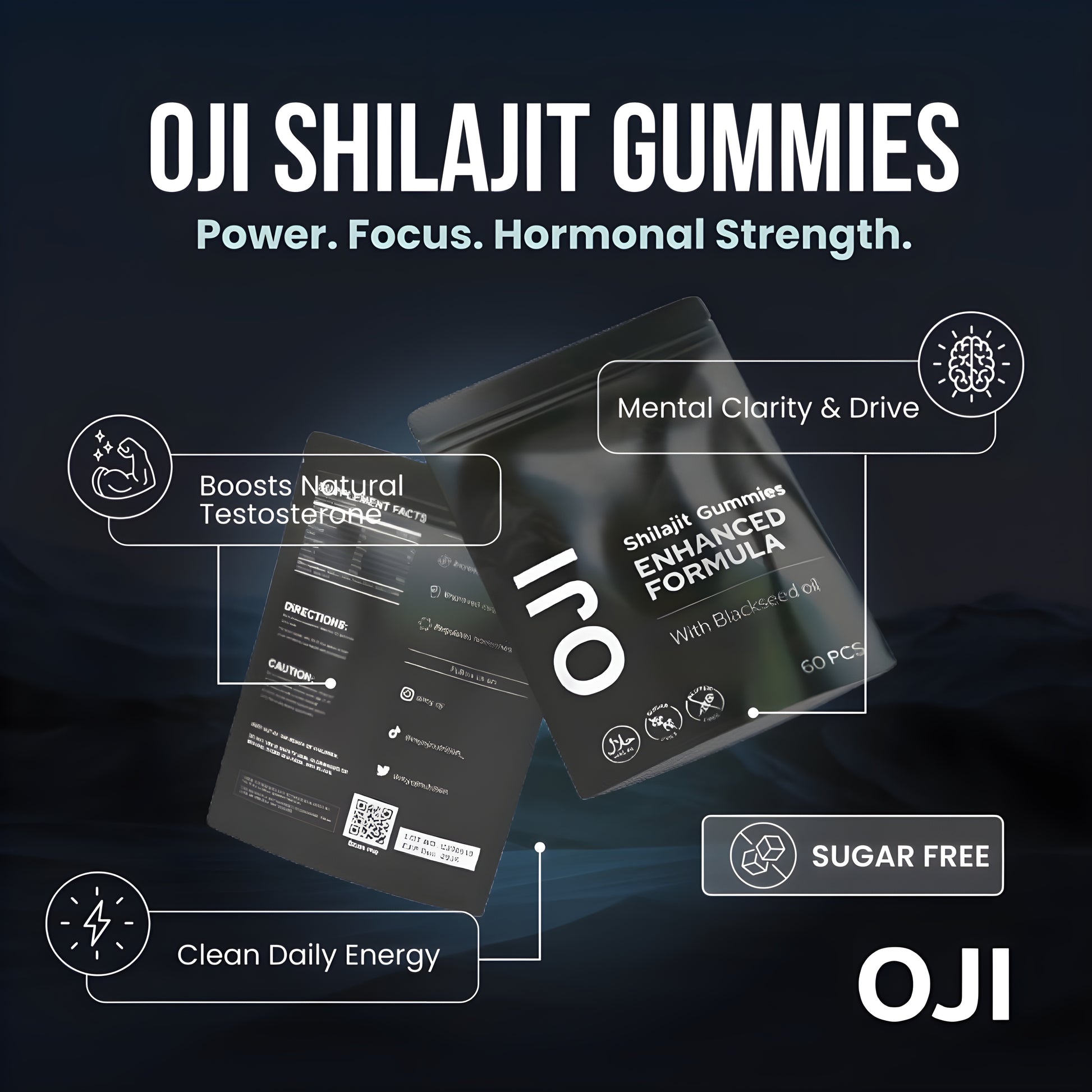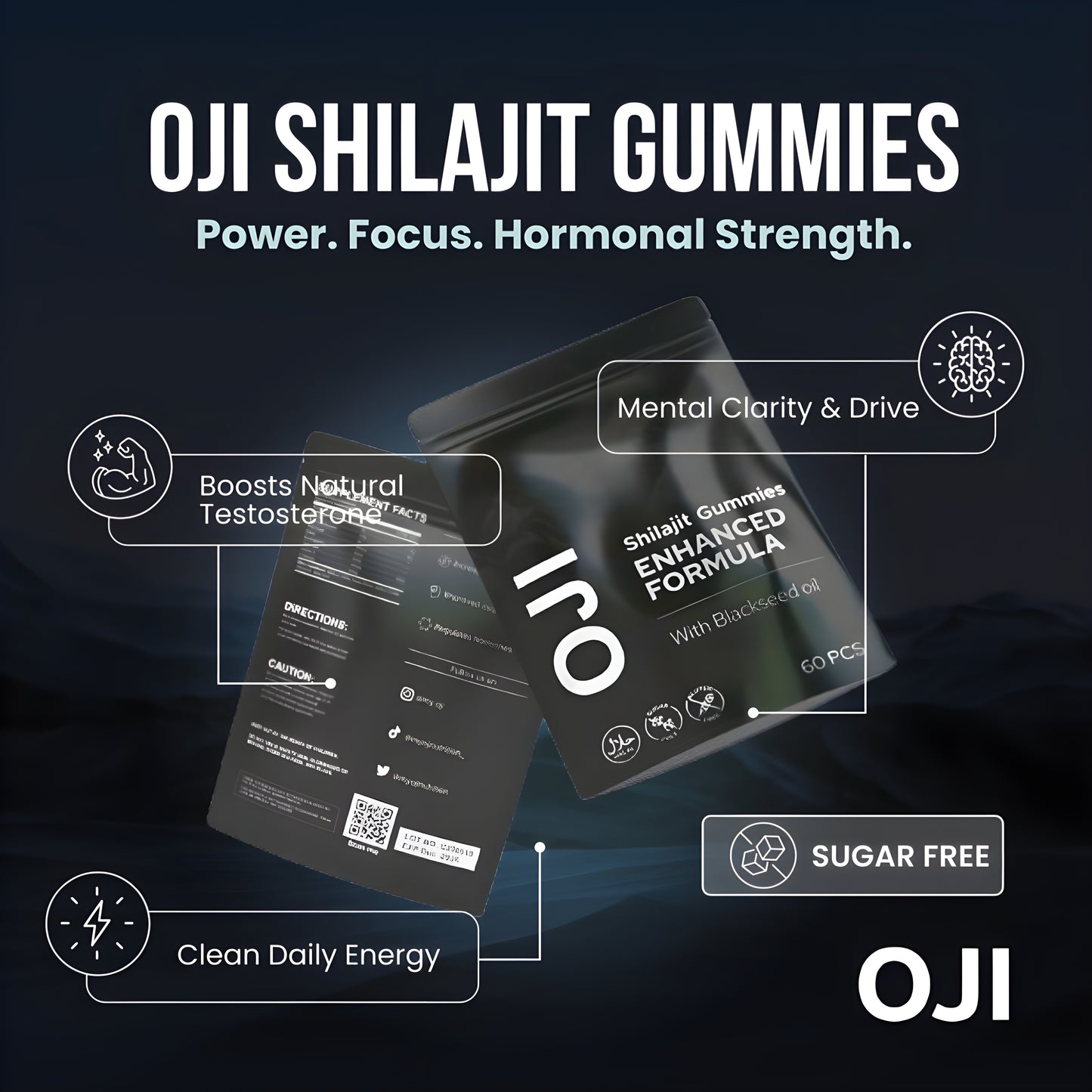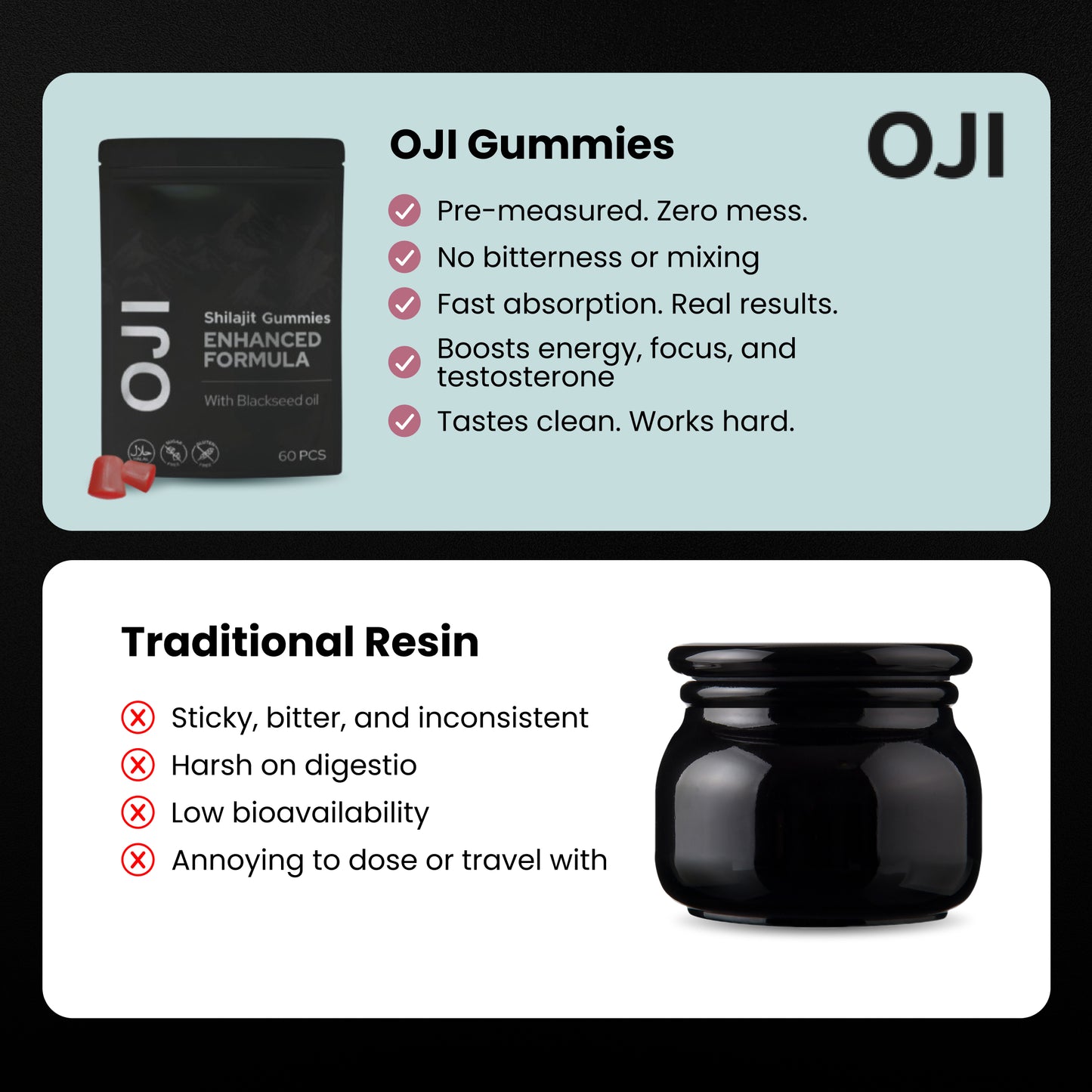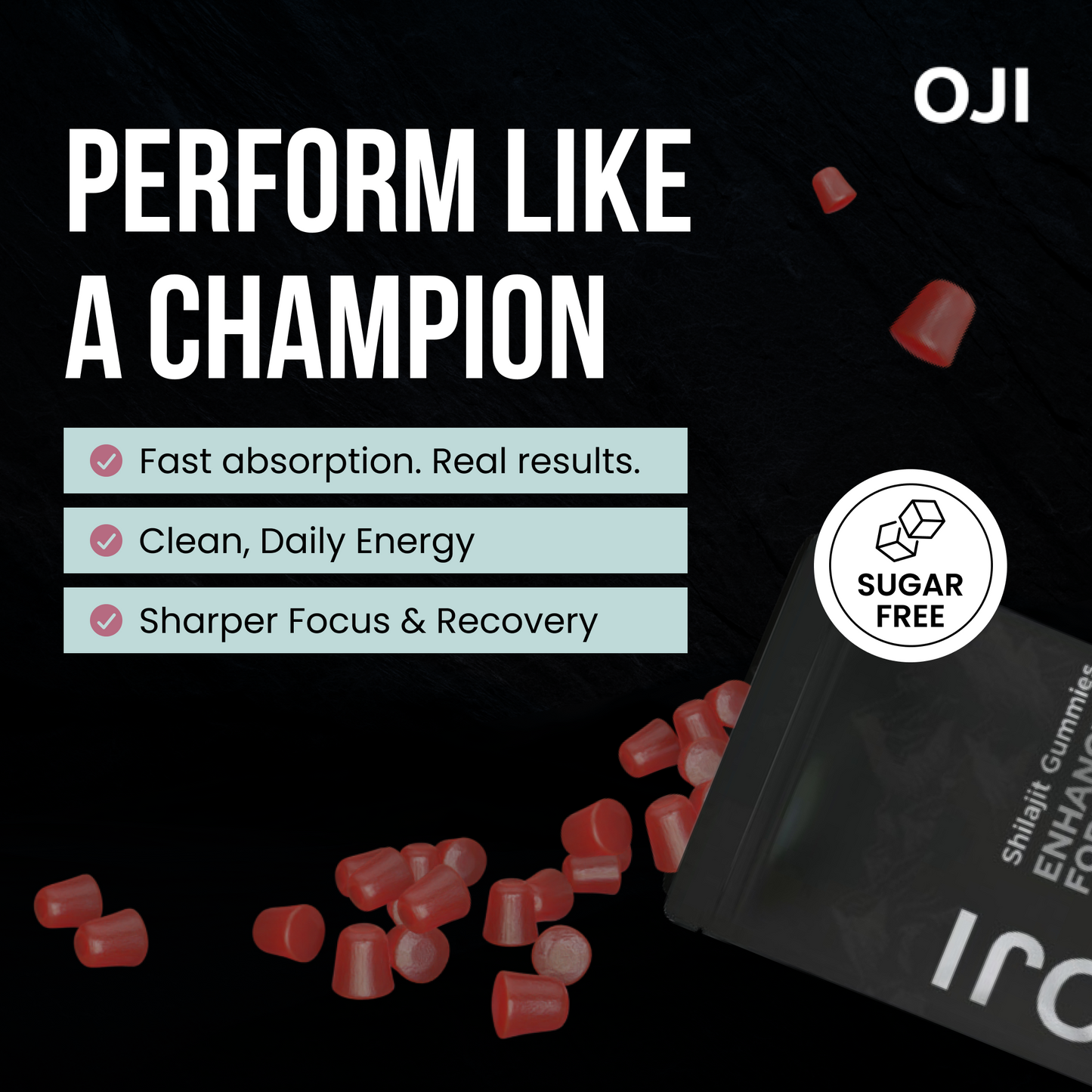Figuring out how to stay focused at work isn't about trying harder. It's about consciously building habits that shield your concentration. This guide gives you actionable steps to do just that.
The Modern UK Challenge of Staying Focused

If you feel your attention is constantly pulled in a million directions, you're not alone. The modern UK workplace, with its always-on culture, relentless notifications, and open-plan offices, makes focus a daily battle.
This constant fight has a real cost. The average UK employee is only truly productive for about 2 hours and 53 minutes of an 8-hour day. This data, highlighted by Standout CV, shows that most of our time is spent on non-essential tasks.
The problem isn't a lack of willpower; it's a lack of strategy. To win back your focus, you need a clear plan of action.
Naming the Enemy: What’s Really Stealing Your Focus?
Before you can improve your concentration, you must identify what you’re up against. While everyone’s situation differs, a few common culprits sabotage focus.
Here’s a breakdown of the biggest offenders and the practical steps you can take to combat them.
Common Workplace Distractions and How to Fight Them
| Distraction Type | Common Examples | Actionable Step |
|---|---|---|
| Digital Interruptions | Constant email pop-ups, Teams/Slack pings, social media notifications. | Turn off all non-essential notifications. Schedule specific times to check emails and messages. |
| Physical Environment | Noisy colleagues, an uncomfortable chair, a messy desk. | Use noise-cancelling headphones. Tidy your desk daily. Adjust your chair for proper posture. |
| Internal Distractions | Stress about deadlines, burnout, personal worries, or a wandering mind. | Use mindfulness techniques. Take short, scheduled breaks to reset your thoughts. |
Recognising these roadblocks is your first step. They are genuine barriers to productivity. The good news is that focus is a skill you can train. By identifying these distractions, you can start building effective strategies to fight back.
Engineer Your Workspace for Deep Concentration
Your immediate surroundings have a huge impact on your ability to focus. To build a space for concentration, you must consciously shape your physical and digital worlds to shut out distractions. Think of it as building your personal focus sanctuary.
The link between where you work and how well you work is well-documented. Research from the UK’s Office for National Statistics shows that regions like London and the South East outperform others, suggesting the workplace environment itself is a key factor. You can read more about these regional productivity insights to understand how setting influences performance.
Optimise Your Physical Space
Start with your physical desk. Make simple ergonomic tweaks, like setting your monitor at eye level and ensuring your chair supports your back, to prevent discomfort from chipping away at your focus.
Beyond comfort, tackle visual clutter. A messy desk creates mental clutter. You don’t need a sterile environment, but everything on your desk should have a clear purpose.
- Implement the One-Touch Rule: Give every item a home. When you use something, put it back immediately. Don’t let things pile up.
- Keep Only Essentials Close: Place only the items you need for your current task within arm's reach. Store everything else in drawers or on shelves.
- Master Your Soundscape: Invest in noise-cancelling headphones. They are a universal "do not disturb" sign, perfect for noisy offices or chaotic homes.
Declutter Your Digital Desktop
Your digital space is just as important as your physical one. A cluttered desktop, countless browser tabs, and open windows are a recipe for distraction. Your goal is to make it easy to find what you need and hard to get sidetracked.
A clean digital environment creates a clear path for your thoughts. By eliminating digital noise, you save mental energy for the work that matters.
Use this simple workflow to get your tasks organised before you even open an application.
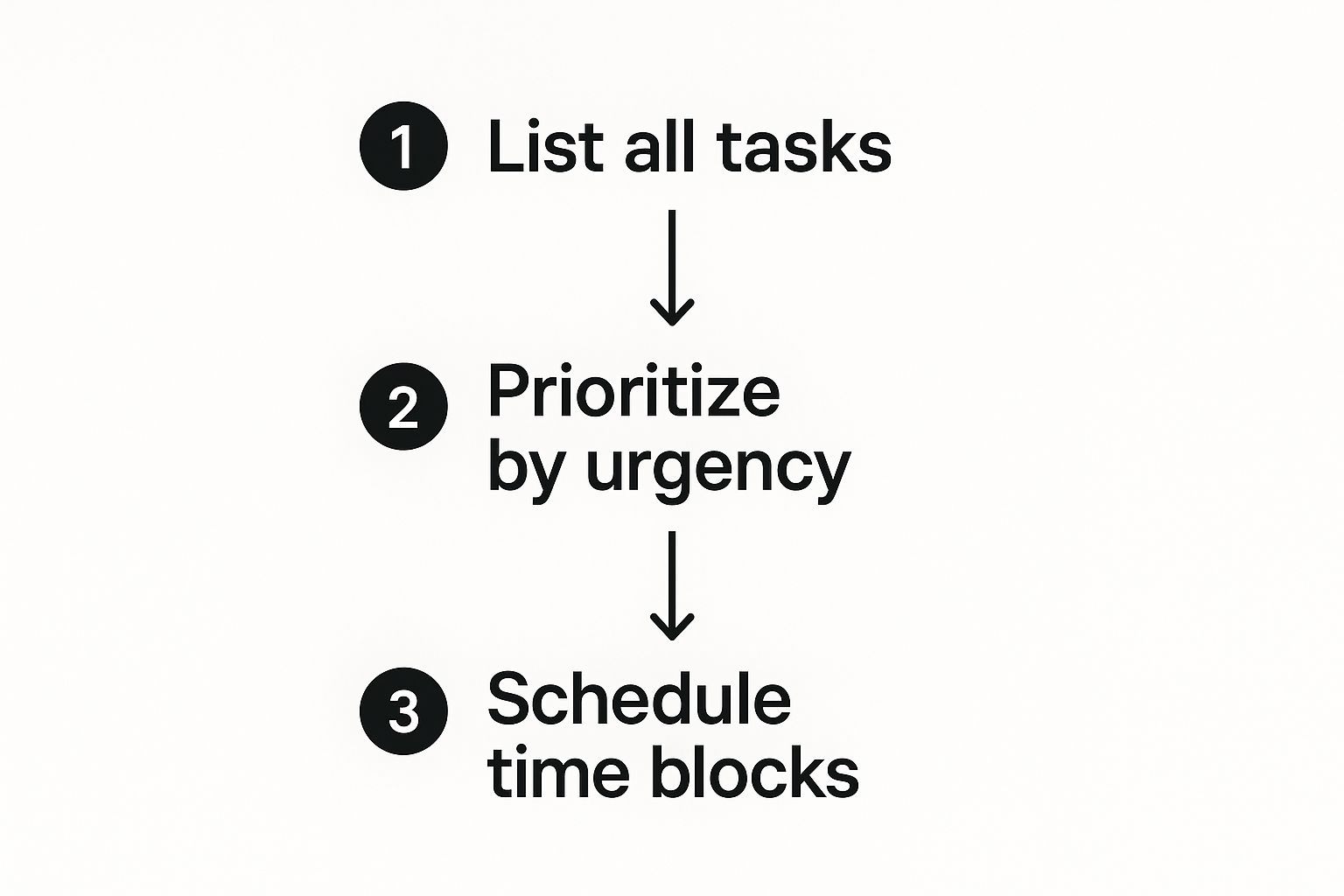
Listing, prioritising, and then scheduling your tasks gives your day a solid structure, preventing digital chaos from taking over. It sets a clear intention for where your focus should be.
Take it a step further: be ruthless with notifications. Turn off every non-essential pop-up on your computer and phone. Instead of letting emails and messages interrupt you, check them on a schedule—perhaps once an hour. This single change can reclaim significant chunks of focused time.
Master Your Schedule with Proven Focus Techniques
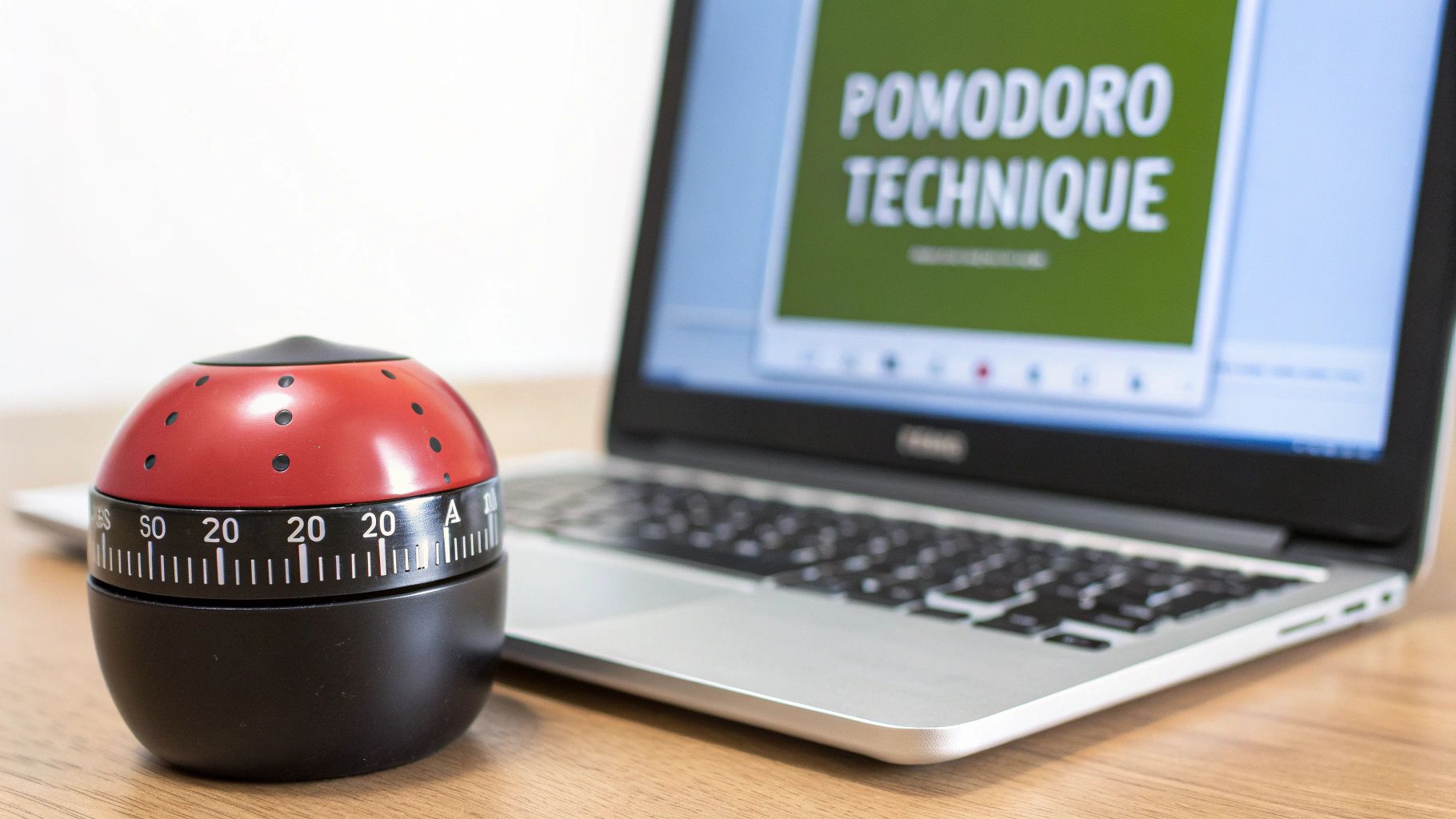
Organising your workspace is a great start, but true focus comes from managing your time effectively. Use these battle-tested techniques to take control of your schedule and dictate where your attention goes. These are simple methods designed to work with your brain's natural rhythms.
Embrace the Power of the Pomodoro Technique
If you struggle to start large, intimidating tasks, the Pomodoro Technique is for you. The concept is simple: work in short, focused bursts (25 minutes), then take a 5-minute break. After four of these sessions (or "Pomodoros"), take a longer break of 15-30 minutes.
This technique works by creating a gentle sense of urgency, making it easier to begin. The built-in breaks prevent mental fatigue and burnout, allowing your brain to recharge.
The genius of the Pomodoro Technique is that it reframes your work. Instead of a daunting three-hour project, your only mission is to focus for just 25 minutes. This makes even the biggest tasks feel manageable.
Implement Time Blocking for Deep Work
Time blocking means scheduling your entire day into specific blocks, each dedicated to a single task. This moves you beyond a simple to-do list and gives every minute of your day a purpose.
Here's a practical example for a project manager:
- 9:00 - 9:30 AM: Clear urgent emails.
- 9:30 - 11:30 AM: Deep work on Q3 strategic plan (no interruptions).
- 11:30 AM - 12:00 PM: Prep for team meeting.
- 1:00 - 2:00 PM: Team sync.
- 2:00 - 4:00 PM: Focus block for writing project reports.
This forces you to be realistic about what you can achieve and protects time for deep work—the mentally demanding activities that drive results. When your calendar clearly says "Deep Work: Project Alpha," you're less likely to be sidetracked.
Use the Two-Minute Rule to Crush Procrastination
Tiny, nagging tasks can derail your focus. The "Two-Minute Rule," popularised by David Allen, eliminates them before they build up. The rule is simple: if a task takes less than two minutes, do it immediately.
This is perfect for actions like:
- Replying to a quick email.
- Filing a document you just used.
- Accepting a meeting invite.
By completing these small jobs instantly, you clear mental clutter and reduce the background stress of a growing to-do list. This frees you up to concentrate on bigger tasks. If stress is a major blocker for you, our guide on natural stress relief techniques offers more useful tips.
Recharge Your Mind and Body to Sustain Focus

Even the best system will fail if you're running on empty. Sustained focus is deeply connected to your physical health. To consistently perform at your best, you must build habits that recharge both your mind and body.
This isn’t just a feeling; it’s reflected in national data. The UK Labour Productivity Flash Estimate shows that while UK output per hour rose by 2.1% in early 2025, overall output per worker remains only 1.4% above pre-pandemic levels. This indicates that true productivity requires having the energy to make your hours count.
Prioritise High-Quality Sleep
The link between good sleep and concentration is undeniable. When you are sleep-deprived, the part of your brain responsible for attention and decision-making struggles. This is where brain fog creeps in, making deep work feel impossible.
To improve your sleep, build good sleep hygiene.
- Create a wind-down routine: An hour before bed, put screens away. The blue light from phones and laptops disrupts melatonin production. Instead, read a book, listen to calm music, or do gentle stretches.
- Stick to a schedule: Go to bed and wake up around the same time daily, even on weekends. This reinforces your body’s natural sleep-wake cycle, helping you feel more refreshed.
Treat sleep as a critical "recharge cycle" for your brain. Sacrificing it is like expecting your phone to run all day on a 10% charge.
Fuel Your Brain Intelligently
What you eat and drink directly impacts your brain's performance. A sugary, processed lunch often leads to an afternoon slump where focus is lost.
Instead, eat brain-boosting foods. Choose complex carbs like oats, lean proteins like chicken or lentils, and healthy fats from avocados and nuts for a steady release of energy. Also, stay hydrated. Even mild dehydration can impair attention and memory, so keep a water bottle on your desk as a constant reminder.
Master the Art of Strategic Breaks
Productive people don't work nonstop; they take smart, high-quality breaks. Mindlessly scrolling social media is not a real break—it just swaps one type of digital noise for another. A proper break should actually recharge you.
Here are actionable break ideas:
- Move your body: Take a 5-minute walk or do simple desk stretches to get blood flowing to your brain for an instant alertness boost.
- Practise mindfulness: Spend two minutes focusing only on your breath. This is a powerful way to calm your nervous system and reset your attention.
- Change your scenery: Step outside for a few minutes. Natural light can significantly improve your mood and energy levels.
These resets are crucial for anyone learning how to stay focused at work. If you constantly battle brain fog, our guide on how to clear brain fog provides extra tips.
Building Your Personal Focus Ritual
Knowing the strategies is one thing; putting them into practice is another. The secret to staying focused is weaving these tactics into a daily ritual that works for you. A flexible framework you design yourself is far more effective than a rigid, one-size-fits-all plan.
This isn't about adding more to your plate. It's about being intentional and creating small routines to protect your attention. By building a simple morning, mid-day, and end-of-day ritual, you give your brain a clear structure to follow, turning abstract advice into a concrete daily habit.
Design Your Morning Launch Sequence
How you start your day sets the tone. Instead of immediately checking your phone and letting others' priorities hijack your morning, create a "launch sequence" to begin with intention.
Here’s a simple 5-minute routine:
- Review your top 3 priorities: Remind yourself what you need to accomplish.
- Set up your workspace: Tidy your desk and close unnecessary tabs from the previous day.
- Take a quiet moment: One minute of deep breathing can clear your head before you begin.
This ritual creates a mental buffer between your personal and work life, signalling to your brain that it's time to concentrate.
A personal focus ritual isn't about perfection; it's about consistency. A two-minute routine, done daily, builds a powerful habit that protects your attention.
The Mid-Day Reset and End-of-Day Shutdown
The afternoon slump is a real focus killer. Instead of powering through with more coffee, plan a deliberate "mid-day reset." Treat it as more than a lunch break—it's a strategic pause to recharge. Step away from your screen, stretch, or walk outside for five minutes.
Equally important is an end-of-day shutdown. Instead of just slamming your laptop shut, take five minutes to organise your desk, review your accomplishments, and list your main tasks for tomorrow. This process provides closure, helping you disconnect from work and prevent it from creeping into your personal time. For more ideas, check out our guide on how to focus better at work.
Got Questions About Workplace Focus? We’ve Got Answers.
Even with a solid plan, common roadblocks can emerge. Here are practical answers to the most frequent questions about workplace focus. These challenges have straightforward solutions.
How Do I Stay Focused When Working from Home?
The key to remote work focus is creating clear boundaries between your work and home life.
Start by setting up a dedicated workspace. It doesn't need to be a separate room—a specific corner will do. This physical separation signals to your brain that it's "work mode."
Noise-cancelling headphones are essential. They act as a "do not disturb" sign for both you and others. Communicate your "deep work" hours to your family or housemates. A schedule with a set start time, planned breaks, and a firm end time prevents burnout and protects your personal time.
Protecting your focus is about respecting your time and professional output. Guarding your concentration leads to better work and more energy for your personal life.
What Is the Best Way to Handle Interruptions in an Open-Plan Office?
In a busy open office, your best defence is polite but firm communication. Headphones are a great visual cue that you are in the zone.
If a colleague interrupts, say, "I'm in the middle of something right now. Can I come by your desk in 30 minutes?" This acknowledges them while protecting your workflow.
Another effective tactic is to block out "Focus Time" in your shared work calendar. This makes your unavailability visible to everyone before they interrupt, setting clear expectations without awkward conversations.
How Can I Beat the Afternoon Energy Slump?
The 2 PM slump is often caused by your body's natural circadian rhythm and your lunch choice. Avoid heavy, carb-dense meals that lead to sleepiness. Instead, opt for a lighter lunch with protein for sustained energy.
Step away from your desk during your break. A quick five-minute walk outside can be more effective than another coffee. Also, stay hydrated. Sipping water throughout the day is a simple but powerful way to maintain steady energy levels and a clear mind.
How Long Until I See Real Improvements in My Focus?
You will notice small wins almost immediately, such as the calm from turning off phone notifications. However, building lasting focus is like training a muscle—it requires consistency.
Commit to using techniques like time blocking or the Pomodoro method daily, and you will likely feel a significant shift within a few weeks. Start small with one or two new habits, master them, and then gradually add more to your routine. Progress will build on itself.
Ready to support your focus and energy from the inside out? Oji Shilajit offers enhanced Shilajit gummies designed to promote natural energy and mental clarity. Formulated with over 85 trace minerals and powerful adaptogens, our plant-based gummies are an easy, tasty way to help you stay sharp and manage stress. Discover a natural boost for your productivity at https://myoji.co.uk.


